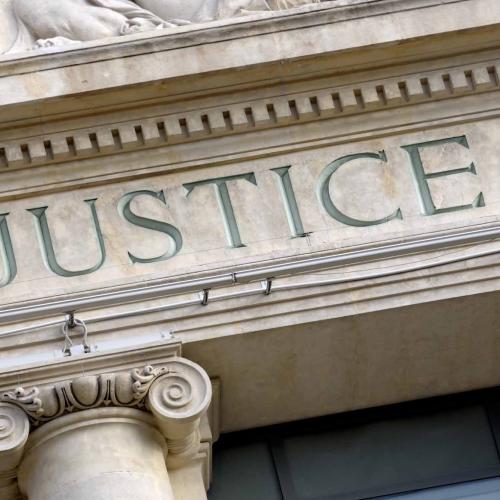Non-compliance with disclosure obligations in criminal cases has far-reaching consequences, impacting both pre-trial and post-conviction phases. The justice system relies on the transparency and ethical conduct of prosecutors to ensure that all relevant evidence is presented. When this duty is neglected, it undermines the integrity of the judicial process, leading to severe repercussions such as the dismissal of charges, new trials, or altered sentences.
Pre-Trial Consequences
Non-compliance with disclosure obligations during the pre-trial phase can lead to significant legal consequences. One of the most severe outcomes is the dismissal of charges with prejudice. This occurs when a court determines that the prosecution has failed to disclose critical exculpatory evidence, thereby violating the defendant's right to a fair trial.
Dismissal of Charges with Prejudice
Dismissing charges with prejudice means that the case is permanently closed, and the defendant cannot be retried on the same charges. This drastic measure is taken to protect the defendant's constitutional rights and to serve as a deterrent against prosecutorial misconduct. Courts resort to this sanction when they find that the non-disclosure of evidence has irreparably harmed the defense's ability to prepare its case.
The dismissal of charges with prejudice is intended to send a clear message about the importance of disclosure obligations. It highlights the judiciary's commitment to upholding ethical standards and ensuring that all parties in a criminal case have access to the evidence necessary for a fair trial. This consequence also emphasizes the seriousness of prosecutorial misconduct and its potential to undermine the entire judicial process.
Other Pre-Trial Remedies
In addition to dismissal, courts have other remedies to address non-compliance. These include granting continuances to give the defense additional time to review newly disclosed evidence and suppressing the prosecution's evidence as a penalty for late disclosure. While less severe than dismissal, these remedies aim to restore fairness and provide the defense with a fair opportunity to prepare its case.
Continuances allow the defense to adequately investigate and respond to new evidence, ensuring that the trial proceeds with all relevant information considered. Suppression of evidence, on the other hand, can significantly weaken the prosecution's case, potentially leading to an acquittal or plea bargain. Both remedies underscore the judiciary's role in maintaining the balance of justice by addressing instances of non-compliance.
Post-Conviction Consequences
When non-compliance with disclosure obligations is discovered post-conviction, the consequences can be equally severe. Depending on the nature and impact of the non-disclosed evidence, courts may order a new trial, resentencing, or even vacate the conviction altogether. These measures are crucial in rectifying the injustice caused by the non-disclosure and ensuring that the defendant's rights are protected.
New Trials
One of the primary post-conviction remedies for non-compliance is the ordering of a new trial. This typically occurs when the undisclosed evidence is found to be material to the defendant's guilt or punishment. A new trial allows the defense to present the previously suppressed evidence, potentially leading to a different outcome.
Ordering a new trial serves multiple purposes. It addresses the procedural injustice suffered by the defendant, restores confidence in the judicial process, and ensures that all relevant facts are considered before reaching a verdict. However, new trials can be costly and time-consuming, highlighting the importance of initial compliance with disclosure obligations.
Resentencing
In cases where non-disclosure affected the sentencing phase rather than the determination of guilt, courts may opt for resentencing. This remedy involves reconsidering the defendant's sentence in light of the newly disclosed evidence. Resentencing aims to ensure that the punishment reflects the true nature of the offense and the defendant's role in it.
Resentencing acknowledges that non-disclosure can skew the sentencing process, leading to unjustly harsh or lenient penalties. By revisiting the sentence, courts can correct these imbalances and impose a punishment that aligns with the principles of justice and proportionality. This remedy is particularly relevant in cases where the non-disclosed evidence mitigates the defendant's culpability or highlights extenuating circumstances.
Vacating Convictions
In the most severe instances of non-compliance, courts may vacate the conviction entirely. This remedy is reserved for cases where the undisclosed evidence fundamentally undermines the validity of the conviction. Vacating a conviction means that the defendant is no longer considered guilty of the offense, effectively nullifying the previous trial's outcome.
Vacating convictions serves as a powerful corrective measure, addressing the deep-seated injustice caused by non-disclosure. It also underscores the judiciary's commitment to upholding the highest standards of fairness and integrity in the criminal justice system. However, this remedy can have significant implications, including the potential for civil litigation and compensation claims against the state.
Implications for the Criminal Justice System
The consequences of non-compliance with disclosure obligations extend beyond individual cases, impacting the broader criminal justice system. Instances of non-disclosure undermine public trust in the legal process, erode confidence in prosecutorial integrity, and highlight systemic issues that require address.
High-profile cases of non-compliance often attract significant media attention, sparking public outcry and calls for reform. These cases serve as stark reminders of the potential for miscarriages of justice and the need for robust oversight and accountability mechanisms. By addressing non-compliance effectively, the criminal justice system can reaffirm its commitment to fairness and transparency.
Systemic Reforms and Training
To mitigate the risk of non-compliance, systemic reforms and training programs are essential. Prosecutors and law enforcement officers must receive comprehensive training on their disclosure obligations, emphasizing the ethical and legal imperatives of compliance. Such training should cover the identification, preservation, and timely disclosure of all relevant evidence.
Additionally, implementing standardized procedures and protocols for evidence management can help prevent non-compliance. These measures include maintaining detailed evidence logs, conducting regular audits, and utilizing digital evidence management systems to track and organize evidence. By adopting best practices, agencies can reduce the risk of oversight and ensure consistent adherence to disclosure obligations.
Judicial Oversight and Accountability
Judicial oversight plays a crucial role in enforcing compliance with disclosure obligations. Judges must remain vigilant in reviewing discovery practices and addressing any indications of non-compliance. This includes scrutinizing prosecutorial conduct, imposing appropriate sanctions, and ensuring that defense attorneys are equipped to challenge potential violations.
Accountability mechanisms, such as independent review boards and disciplinary bodies, are also vital in addressing non-compliance. These entities can investigate allegations of misconduct, recommend sanctions, and promote best practices within prosecutorial offices. By fostering a culture of accountability, the criminal justice system can uphold its commitment to ethical conduct and transparency.
Non-compliance with disclosure obligations has profound consequences for both individual defendants and the broader criminal justice system. Pre-trial remedies, such as dismissal of charges with prejudice, and post-conviction measures, including new trials, resentencing, and vacating convictions, underscore the critical importance of adhering to these obligations.
Addressing non-compliance requires a multifaceted approach, including systemic reforms, comprehensive training, judicial oversight, and robust accountability mechanisms. By fostering a culture of transparency and ethical conduct, the criminal justice system can ensure that all parties have access to the evidence necessary for a fair trial, thereby upholding the principles of justice and due process.



